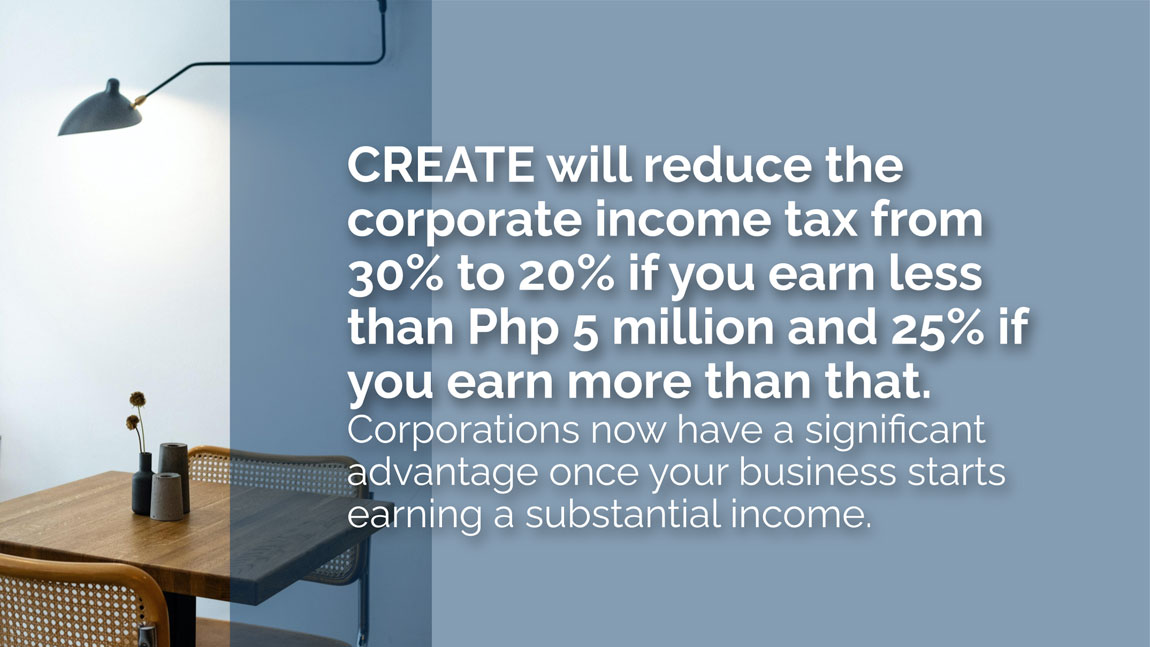
Startup Guide: Sole Proprietorship or Corporation?
When you finally decide on incorporating your business, you will be faced with deciding between Sole Proprietorship or Corporation.
There are also partnerships and one-person corporations but in the interest of simplicity, I will compare the two (rightfully) more popular business structures.
This is a very important decision for your business as you cannot convert from a sole proprietorship to a corporation and vice versa. If you change your mind later on, you will have to close your current business structure and open a new one which will entail significant financial and operational costs.
People and Investment Advantage
Sole proprietorship’s greatest weakness is in its name. It is sole or only for one person.
No great startup has succeeded with only one owner whether it is Facebook, Google, or Apple.
Even if a solo founder builds enough traction or profitability early on, eventually he or she will have to bring in other talented people whether partners, investors, advisors, and employees who will want stocks or stock options.
If you will ever want additional financial, human, or social capital, the corporation is the structure that will easily allow you to add such capital.
WINNER: Corporations by a landslide, because no unicorn is an island.
Tax Advantage
The answer used to be that it depends.
Under the TRAIN Law, sole proprietorships are subject to graduated rates of zero percent to thirty-five percent (0 to 35%) meaning the more you earn, the higher the percentage of tax you would pay. Sole proprietorships earning less than P3 million a year may choose to instead pay a special 8% tax of gross sales which makes it perfect for service businesses like freelance work or consultancies.
Corporations, on the other hand, were previously subject to a flat thirty percent (30%) of net income regardless of how little or how much profit you earned.
But the Corporate Recovery and Tax Incentives for Enterprises (CREATE) about to pass into law is a game changer.

CREATE will reduce the corporate income tax from thirty percent (30%) to twenty percent (20%) if you earn less than P5 million and twenty-five percent (25%) if you earn more than that. Corporations now have a significant advantage once your business starts earning a substantial income.
WINNER: Corporations by a mile when you start having an annual income above P3 million. Below that, it can go either way depending on your type of business.
Compliance Advantage
It is harder to open and maintain a corporation.
Sole Proprietorships go through the Department of Trade and Industry where it is incredibly easy to reserve your name and register online where it can be valid for five (5) years. There is very little paperwork unique to the Sole Proprietorship after registering and going about your business because you decide everything.
Corporations on the other hand go through the Securities and Exchange Commission where you will have to submit Articles of Incorporation and By-Laws. Even after registering, you will have to submit a General Information Sheet (GIS) annually and deal with things like Board Resolutions, Secretary Certificates, and Minutes of the Meetings in order to justify corporate transactions.
WINNER: Sole Proprietorships and everyone who hates paperwork.
Legal Advantage
If your startup goes broke, this is the big advantage of a corporation.
The corporation is considered separate from you. It doesn’t matter if you own all or most of the shares in a corporation that has a lot of debt. Generally, the debts of a corporation are not your personal debts.
If your sole proprietorship goes broke and you still owe money to other companies, they can go after your personal property to pay the debt. That means that your assets can be seized by creditors so not only is your company broke, you become broke as well.
WINNER: Corporation if you are minimizing the worst-case scenario.
Customization Advantage
Corporations give you a lot of flexibility because shares of stock are a wonderful thing. You can create multiple classes of shares so that even if you have less than half the shares of the company, you can still control the company. You can implement vesting agreements that require co-founders and employees to stay for years. When you need money, it is easy to sell shares for cash to an interested buyer.

Eventually it is the Corporation which can go through an Initial Public Offering (IPO) or easily be acquired. Aside from the shares themselves, the Articles of Incorporation allow you to structure everything about how your company works.
Compare that with a Sole Proprietorship which doesn’t offer much structure because you as the owner are literally the structure. If you die, the sole proprietorship actually dies with you.
WINNER: Corporation unless you dislike having options.
Conclusion
Corporations won 4 of the 5 comparisons we examined.
Sole proprietorships are a great option for smaller businesses.
But for any business hoping to make it big, the corporation is the clear winner.
Atty. Raymond Rodis is one of the many lawyers you can find on Digest. Post your legal concern here on Digest and we will find you a lawyer that fits your budget and issue.
Digest is a one-stop shop for Philippine laws, lawyers, and contracts.
